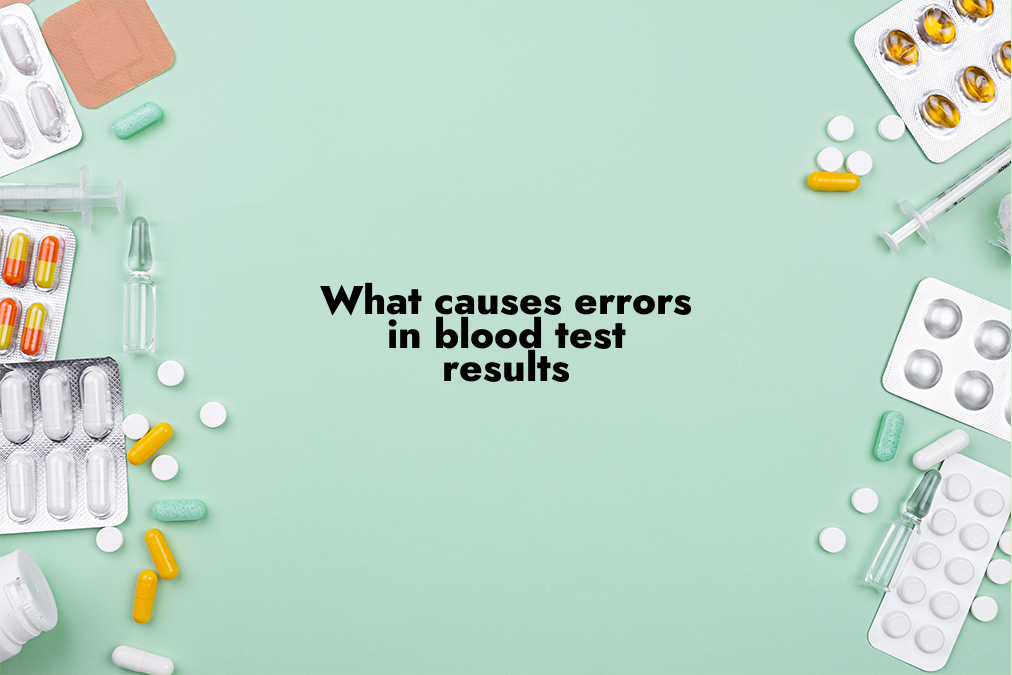When it comes to medical diagnostics, blood tests are indispensable tools. They provide crucial insights into our health, helping doctors make informed decisions. However, as accurate as they are, blood tests are not infallible. Errors can occur, and understanding the factors behind these errors is essential for both patients and healthcare professionals. In this article, we will delve into the intricacies of blood tests, exploring the common causes of errors and shedding light on how to mitigate them.
I. The Complexity of Blood Tests
Blood tests are intricate procedures that involve various parameters and factors. Understanding their complexity is the first step in comprehending why errors may occur.
A. Multifaceted Parameters
Blood tests measure a wide range of parameters, from cholesterol levels to white blood cell counts. Each parameter requires precise analysis, and any deviation in the testing process can lead to errors.
B. Laboratory Variability
Different laboratories may use slightly different methods and equipment, contributing to variations in test results. While these differences are usually minor, they can lead to discrepancies.
II. Common Causes of Errors
Now, let’s delve into the primary reasons behind errors in blood test results. It’s essential to recognize these factors to ensure the reliability of the data.
A. Sample Contamination
One of the leading causes of errors is sample contamination. This can occur during blood collection, transportation, or processing. Contaminants from the environment or improper handling can alter the composition of the blood sample, leading to inaccurate results.
B. Human Error
As in any profession, human error can play a significant role. This can include mislabeling samples, mixing up patient records, or even mistakes in data entry. Attention to detail and strict protocols are essential in reducing these errors.
C. Fasting and Medications
Certain blood tests require patients to fast before the test, while others necessitate specific medication adjustments. Failure to follow these instructions can result in erroneous readings. It’s crucial for patients to adhere to pre-test requirements to obtain accurate results.
D. Timing
The timing of blood tests can also impact the results. Hormone levels, for example, fluctuate throughout the day. Therefore, it’s vital to schedule tests at the appropriate times to ensure accuracy.
E. Lab Equipment
Even the most advanced laboratory equipment can experience calibration issues or malfunctions. Regular maintenance and calibration are essential to prevent equipment-related errors.
III. Mitigating Errors and Ensuring Accuracy
Now that we’ve explored the causes of errors, let’s discuss how to mitigate them and ensure accurate blood test results.
A. Patient Education
Educating patients about fasting requirements, medication adjustments, and proper preparation for blood tests is crucial. Informed patients are more likely to follow instructions accurately.
B. Quality Control Measures
Laboratories must implement rigorous quality control measures to identify and rectify errors promptly. Regular audits, staff training, and equipment maintenance are essential components of this process.
C. Standardization
Efforts should be made to standardize testing methods across different laboratories. This can help reduce variability in results and improve overall accuracy.
D. Technology Advancements
Continual advancements in technology have led to more reliable testing methods. Embracing these innovations can help reduce errors and enhance the precision of blood tests.
IV. Conclusion: Striving for Accuracy
In conclusion, while blood tests are invaluable tools in healthcare, errors in results can occur due to various factors. Understanding the complexity of these tests, recognizing common causes of errors, and implementing mitigation strategies are essential for ensuring accuracy.
Remember that the reliability of blood test results is a shared responsibility between healthcare providers and patients. By working together and staying vigilant, we can minimize errors and make better-informed healthcare decisions. So, the next time you have a blood test scheduled, pay attention to the details, and ensure the results truly reflect your health status.

